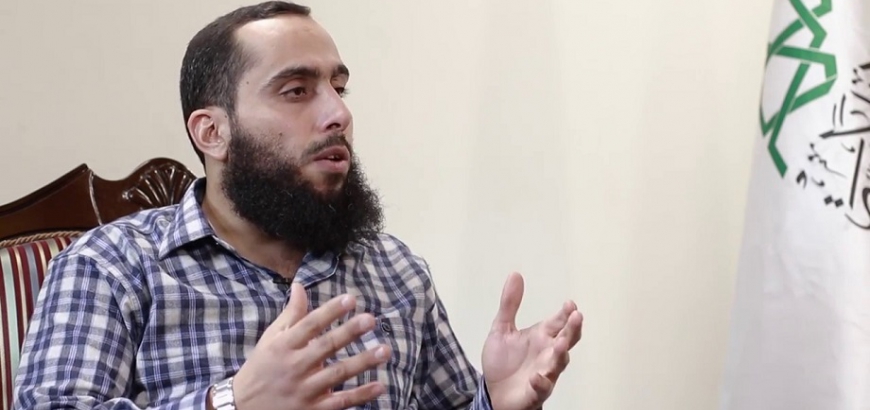Abou Ammar al-Omar, the leader of Ahrar al-Sham, one of the biggest Syrian rebel groups, said that for the last three years, the regime of Syrian President Bashar al-Assad has not had a functioning army thanks to the military operations of rebel groups against its units.
“The regime’s dependence on Iran and Russia has turned the revolution from a popular revolution against an oppressive dictatorship to a complicated international scene, while it has contributed to expanding the war and increasing the suffering of the Syrian people,” he said.
Abou Ammar told the Anadolu news agency that the United Nations’ failure to address the Iranian-Russian role in Syria would expand the circle of the conflict outside Syria’s borders as a result of the expansionary ambitions these two countries are striving for.
He said that the recent Khan Sheikhoun massacre, in which the regime used internationally banned sarin gas, was the clearest example of the regime depending on Russian support. He said that the regime disdained international law and refused to comply with the international community because of the guarantee that Russia would use its veto to the regime's advantage.
He said that the opposition groups had been able to destroy the regime’s army and put most of the regime’s military units out of service, but that the increase in Russian-Iranian influence in Syria would make a political solution unlikely.
“The regime depends on throwing the sons of its sect into the war and fully depends on the militias of Hezbollah, the Iranian Revolutionary Guard, Iraqi and Afghan Shiite militias, and others,” he said.
He added: “Even with that, the revolutionaries managed to defeat these combined forces and achieve major strategic victories before the direct Russian intervention with areal weapons. It employed a policy of scorched earth which led to the regime advancing in some areas. However, the rebel groups still hold the reins of initiative in many areas.”
Regarding the possible battle for Idleb province in northwestern Syria, he said that this was not the first time Assad’s forces had launched this type of campaign, pointing out that last summer the regime and its loyalist militias made advances through the southern Aleppo countryside in an attempt to reach Idleb. However, their attempts failed and they suffered heavy losses.
He said it was expected that the Russians would advance in the same way, but what was new this time was that the regime and the Russians were threatening to use the Kurdish militias of the Democratic Union Party in addition to the Iraqi and Iranian sectarian militias.
He noted that the Russians are trying to use them as a bargaining card to pressure their competitors. Abou Ammar said that the expansion of this militia's influence aimed for control of the border with Turkey, which meant the desire to harm the Syrian revolution and threaten the security of Turkey at the same time.
“The opposition factions will repulse the aggression and derail it if it happens,” he said.
Abou Ammar praised the Turkish role in the Syrian revolution and said that Turkey had stood alongside the people which had been abandoned by those near and far. He said that Turkey had paid a price for their support, pointing to a series of terror attacks inside the country and an attempted coup.
He said that Turkey was owed a debt by the Syrian people and their revolution, which will help develop their strong relationship. He noted that Turkey had intervened at an important turning point, represented in its move toward a presidential system which will streamline its support to the Syrian revolution and help in lifting oppression from the region, as he put it.
Abou Ammar said he believed that “the war in Syria will not stop before the Assad regime and all its agencies and military leaders fall, and the people are left to decide their own future as accords with their identity and their principles, in a united Syria, without pressure or instructions. Without this, the situation in the country cannot stabilize, nor in the region as a whole, because the Syrian regime and its backers are the biggest supporters of terrorism and export it to the world directly and indirectly.”
“The opposition, in light of this scene, is sticking to the revolution and the principles for which it was launched, and it will not be turned from this path by all the interventions,” he said.
This article was translated and edited by The Syrian Observer. Responsibility for the information and views set out in this article lies entirely with the author.


